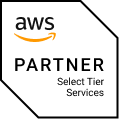Staying competitive in the retail sector goes beyond simply grasping market trends and knowing what consumers prefer. What you really need for long-term success is a refined approach to analyzing data, an approach that can turn seemingly unimportant information into valuable insights. This article delves into how cloud data platforms assist in uncovering hidden data that becomes crucial for achieving success in retail.
The evolution of retail analytics
Retail analytics used to depend primarily on local solutions that were constrained by storage and processing limitations, but the emergence of cloud technologies has now opened doors for retailers to fully leverage their data. Cloud data platforms provide a scalable and adaptable infrastructure, facilitating the smooth integration of various data sources and formats.
Centralized data management
Cloud data platforms offer a crucial advantage: centralized data management. Retailers can gather data from various sources—such as sales transactions, customer interactions, and inventory levels—and consolidate them into one central repository. This method eradicates data silos and offers a comprehensive view of the entire business.
Real-time analytics
The retail landscape evolves rapidly, demanding real-time decision-making. Cloud data platforms simplify these processes, allowing retailers to monitor key performance indicators, track sales trends, and adapt to market shifts quickly. This adaptability is crucial in a fiercely competitive market where every detail is paramount.
Unlocking the power of big data
Retail analytics deals with substantial volumes of data, posing both a challenge and an opportunity. Cloud data platforms are specifically designed to handle extensive datasets efficiently and excel in tasks like analyzing customer behavior, predicting demand, and refining supply chains. Cloud platforms offer the computational capacity necessary to process and extract insights from these extensive datasets.
Advanced analytics and machine learning
Cloud data platforms provide robust backing for advanced analytics and machine learning algorithms. Retailers leverage predictive analytics to foresee consumer behavior, suggest personalized products, and fine-tune pricing strategies. Machine learning models can also discern patterns within data that might escape traditional analytic approaches, granting an extra edge in decision-making for a competitive advantage.
Scalability and cost-effectiveness
For many retailers, adapting to varying data loads is a significant concern because the influx of information keeps increasing. That’s where the flexibility of cloud data platforms really stands out. Instead of investing heavily in expanding local systems, businesses utilizing these platforms can easily adjust their data processing capabilities as required, paying solely for the resources they utilize. It’s about efficiency and cost-effectiveness hand in hand.
Safety and compliance
Keeping customer data safe is a top priority in retail, and that means meeting all security requirements. The big cloud data platforms go through serious certifications, creating a safe space to store and handle data. This lets retailers dive into their data for insights without worrying about security.
Success stories
Several major retailers have adopted cloud platforms for their data operations, leading to transformative outcomes. For instance, Amazon implemented advanced analytics to personalize customer recommendations, resulting in increased sales and positive customer feedback. Similarly, Walmart utilizes real-time analytics to optimize inventory levels, effectively reducing instances of shortages and excess stock.
Leveraging cloud platforms for analytics enables retailers to base decisions on extensive data volumes, enhancing operations and elevating the overall customer experience. SHALB’s team is ready to share its expertise in cloud computing, helping retailers to propel their businesses into a new era of innovation and competitiveness.


